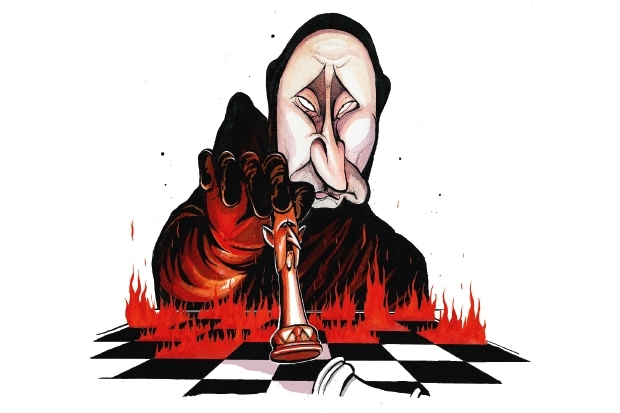We have been here before. Russia is at the centre of an international crisis of its own creation. And we know how it plays out: briefly there is shock in Western capitals, quickly followed by outrage. This is entirely justified given that Alexey Navalny, Russia’s most prominent opposition figure – and the second most popular politician in the country – is lying in a coma in a Berlin hospital having been poisoned, according to the German government, by the nerve-agent Novichok. In diplomatic language, this is expressed as ‘deep concern’ with Russia’s ‘shocking and irresponsible’ behaviour, which is condemned ‘in the strongest terms’.
Next comes Russia’s disinformation onslaught. Already, Maria Zakharova, Russia’s foreign ministry spokeswoman, has said the suggestion that Navalny was poisoned with Novichok is ‘yet another information campaign’ against Russia. Sputnik, a Russian state-owned propaganda outlet which masquerades as a media organisation, has claimed that ‘Navalny’s symptoms [are] uncharacteristic for poisoning by Novichok, [according to the] nerve agent’s developer’.

Britain’s best politics newsletters
You get two free articles each week when you sign up to The Spectator’s emails.
Already a subscriber? Log in






Comments
Join the debate for just £1 a month
Be part of the conversation with other Spectator readers by getting your first three months for £3.
UNLOCK ACCESS Just £1 a monthAlready a subscriber? Log in